STOP THE RAZOR CAMPAIGN
A 6-month anti-FGM awareness campaign across Manchester, visiting Oldham, Moston, and Salford. Running from March - August 2024. Sponsored by The National Lottery Community Fund.
LATEST CAMPAIGN UPDATES
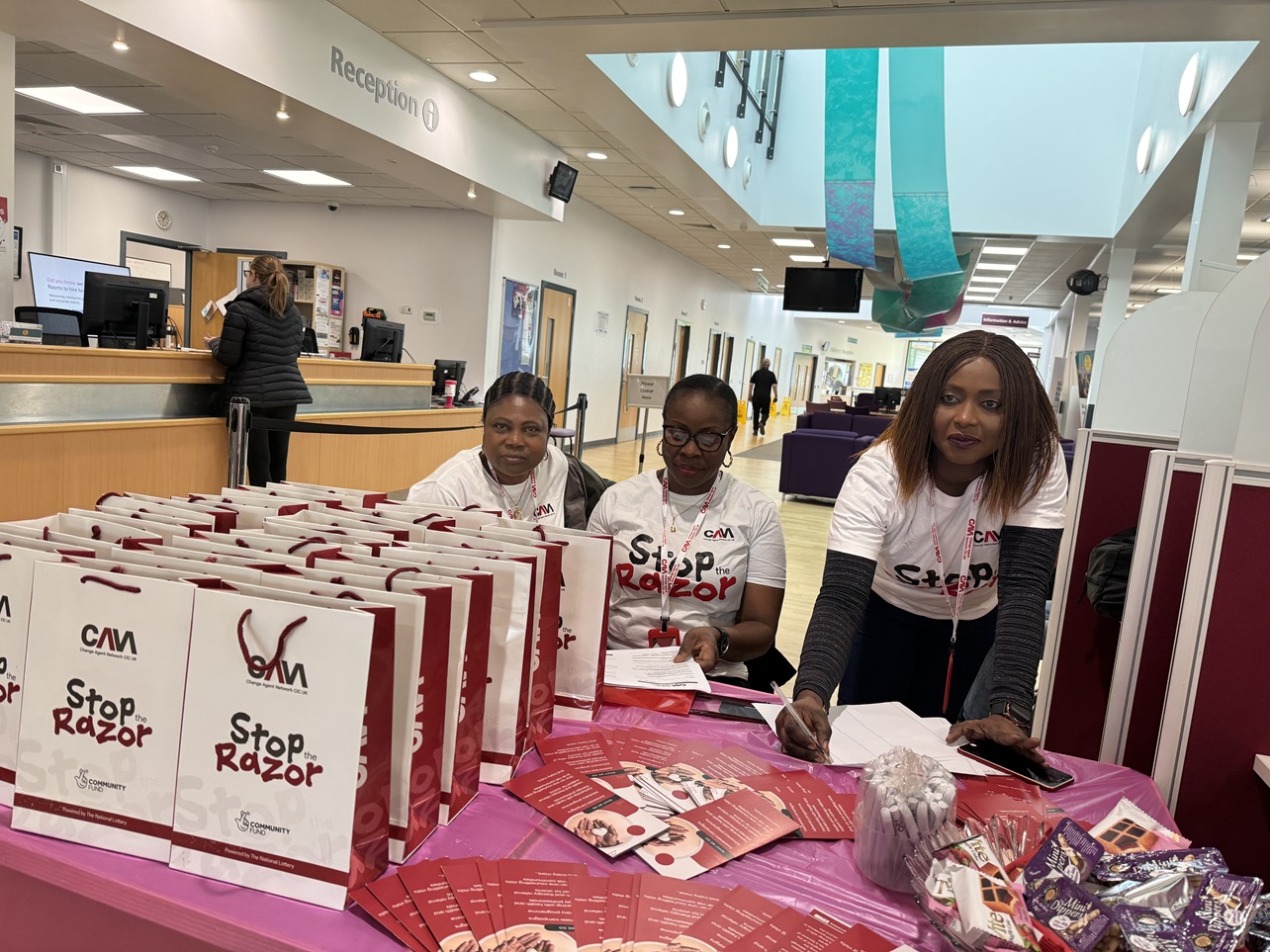
STOP THE RAZOR: SALFORD OUTREACH
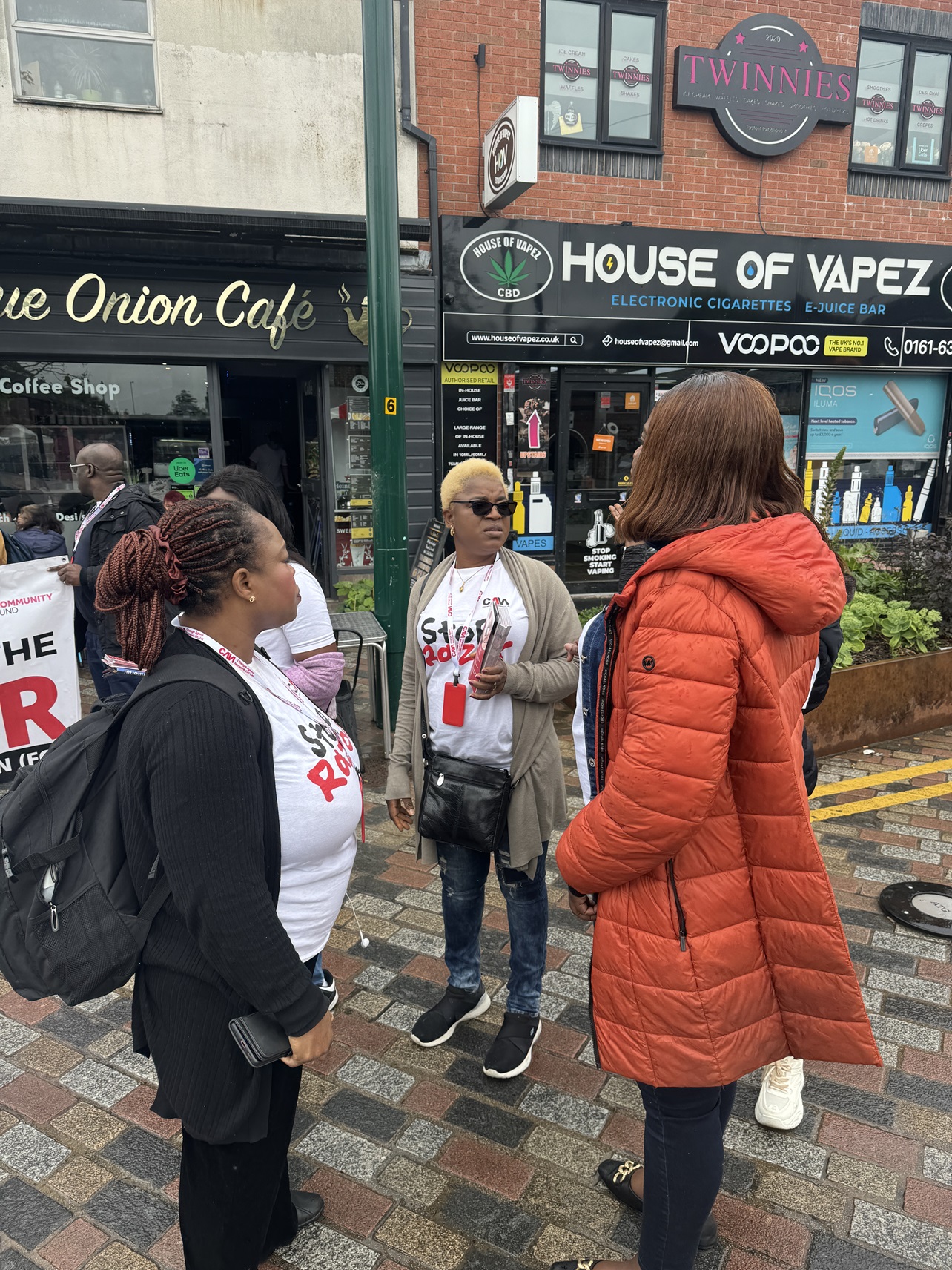
STOP THE RAZOR: OLDHAM OUTREACH
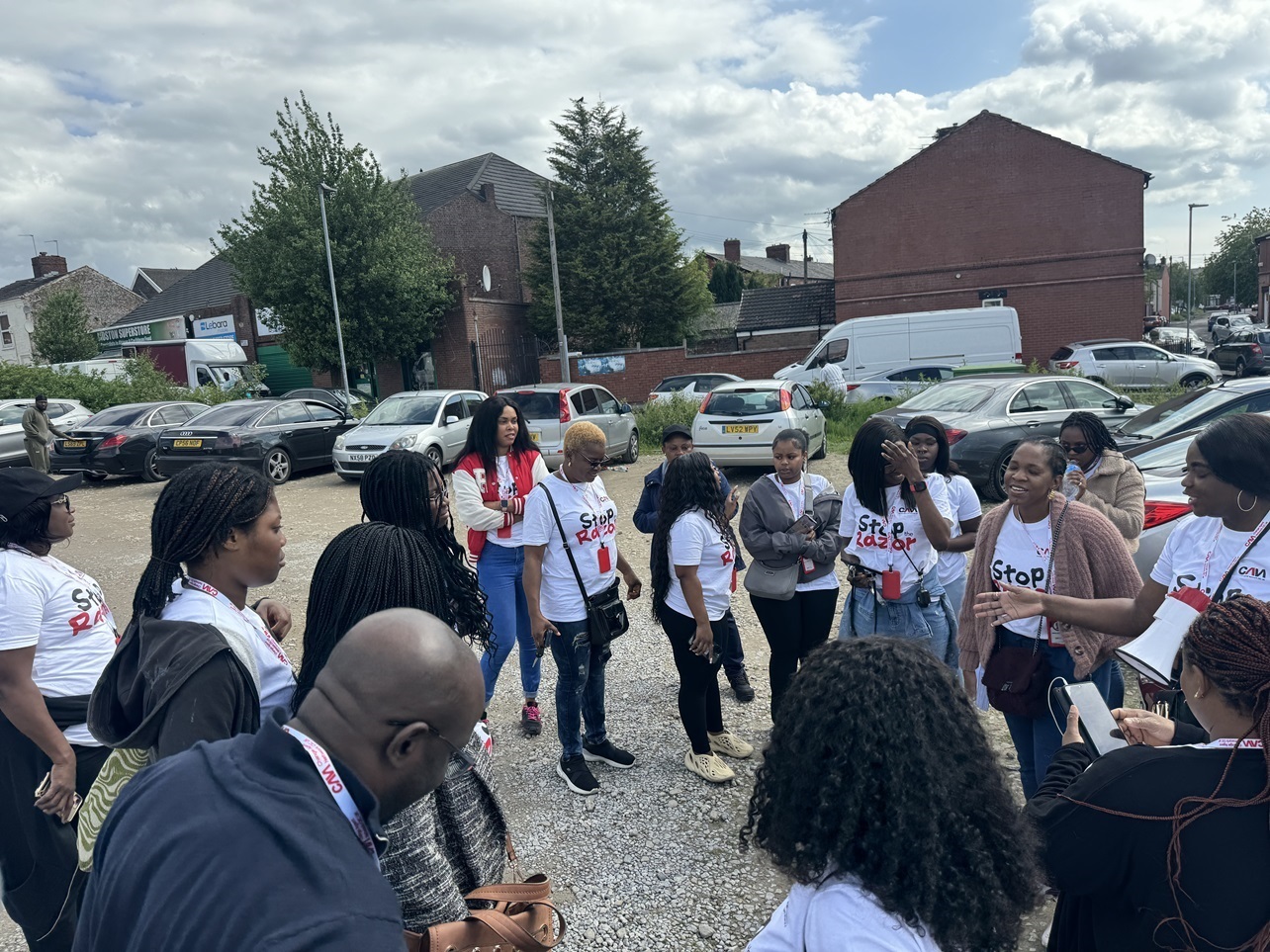
STOP THE RAZOR: MOSTON OUTREACH
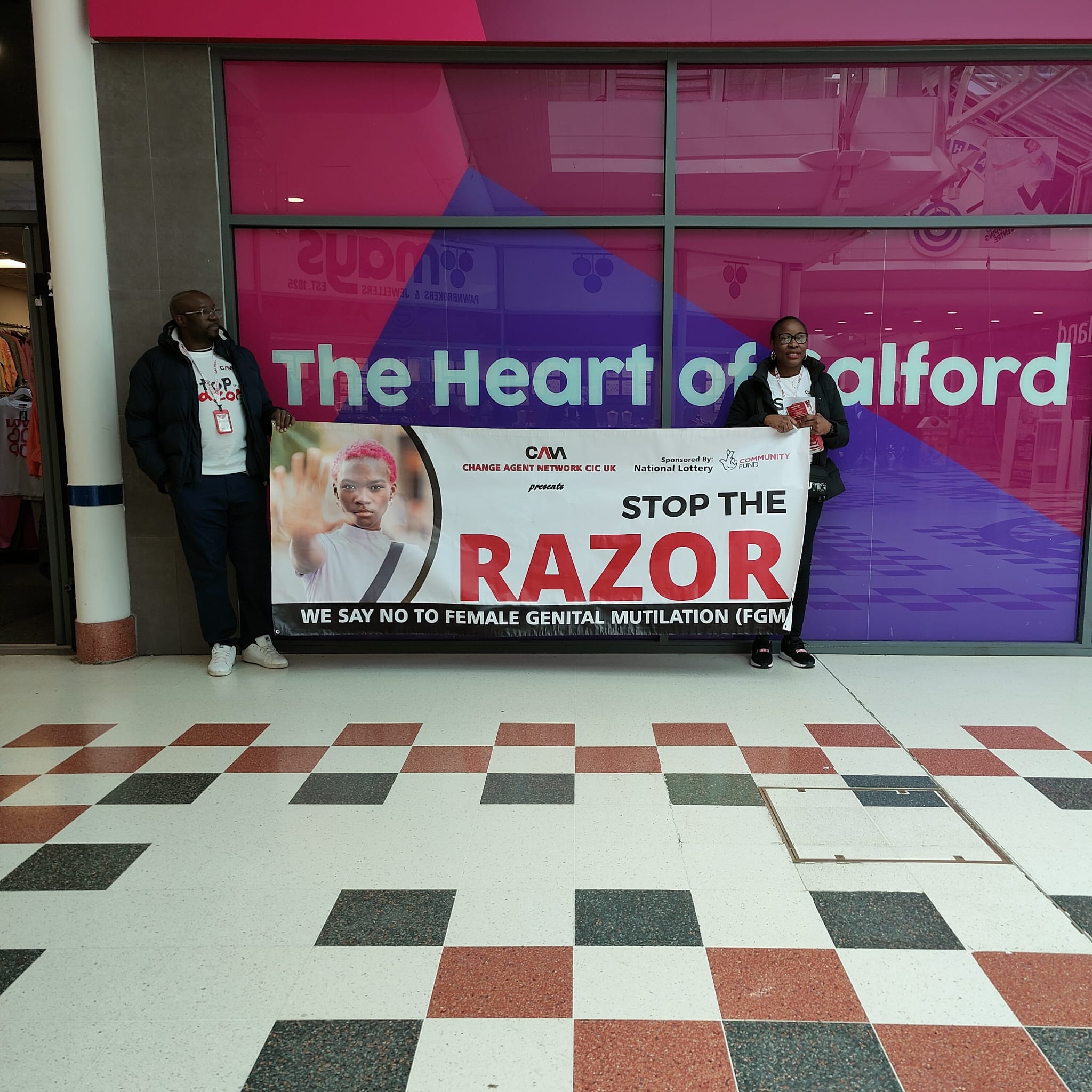
Volunteers Outreach at Salford for Stop the Razor Campaign

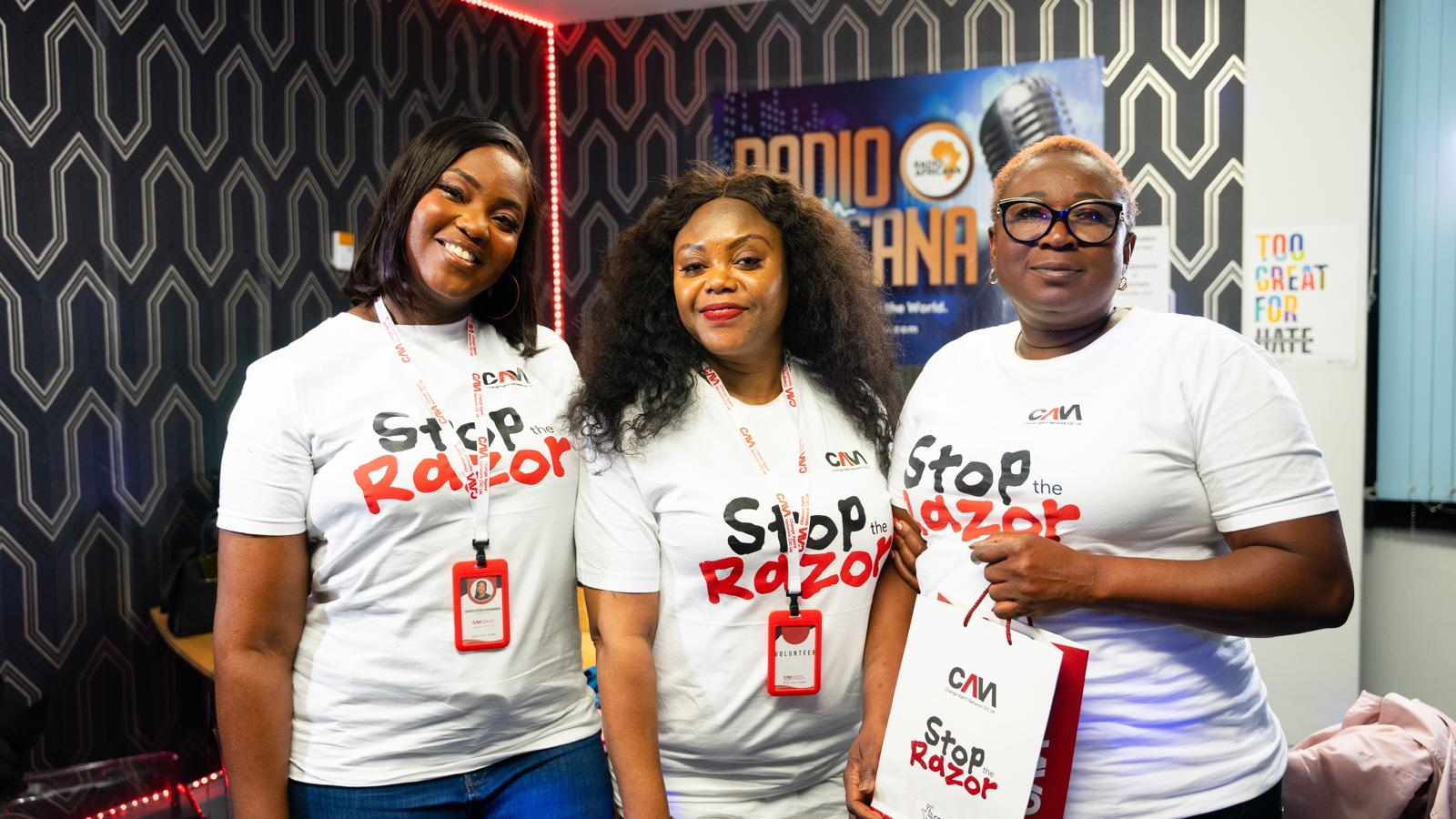
Directors Outreach for Stop the Razor Project
ABOUT THE CAMPAIGN
A survey by “Trust for London” reported that about 137,000 women have undergone Female Genital Mutilation (FGM) in England and Wales. From this number, Manchester has the second highest prevalence rate after London. More than 2,000 girls living in Greater Manchester are estimated to be at risk.
Consequently, Change Agent Network CIC has embarked on a community project titled, Stop the Razor, which is a campaign and outreach program aimed at creating awareness on the negative impacts of FGM and advocating for the right of vulnerable groups in the community whilst building on FGM data for the prevention and response to FGM in Greater Manchester. The target participant groups include Greater Manchester’s Black Asian and Minority Ethnic (BAME) community, the young women at risk of FGM, and women with lived experiences of this cruel practice.
Stop the Razor includes monthly city tours around Oldham, Moston, and Salford. Through rallies and marches, informative flyers, and educational seminars in community centres and at locally organised events Change Agent Network will raise awareness about the dangers of Female Genital Mutilation. We will also set up an online hub that will provide vital open-source information and resources on FGM including anonymised personal stories and statistics from program participants. We will also undertake a baseline research that will deep dive to better understand the underlying cultural, religious and behavioural factors that are responsible for this harmful traditional practice to continue in our community.
The programme will run for 6 months, with a Grand finale event in Cheetamhill involving the launch of the FGM research report where we will share our findings with a broad range of stakeholders including frontline workers such as the social workers, activists, police, representatives from the Manchester City Council, other NGOs, academics, and persons with lived experiences.